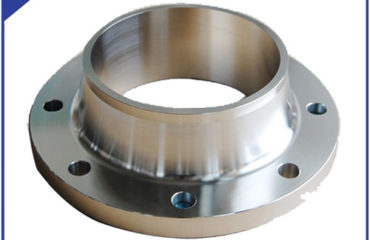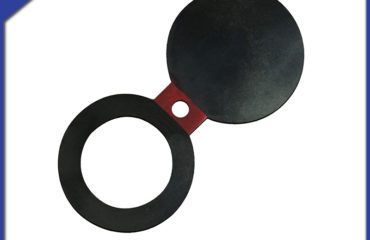Stainless steel flange stamping industry is a touching category of the extremely common industry, deepen to the manufacturing sector, in foreign countries will stamping called sheet forming, stamping sometimes called sheet forming. The so-called sheet metal forming refers to the use of plates, thin-walled tubes, thin profiles, such as raw materials for plastic processing as the forming method collectively known as sheet metal forming, at this time stamping skills common sense, thick plate deflection of ordinary not focus on thinking.
Stamping is to rely on the press and die on the plate, strip, pipe and profiles, such as the imposition of external forces to produce plastic deformation or separation, so as to obtain the required shape and size of the workpiece (stamping parts) and carbon steel flange forming processing methods. Stamping and forging the same plastic processing (or pressure processing), collectively known as forging. The stamping billet is mainly hot-rolled and cold-rolled steel and steel strips. Among the world’s steel, $number is the plate, most of which is pressed into the finished product.
Stamping die is called die. Punching die is a special tool for processing material (metal or nonmetal) in batches into the required punching parts. Die in the flange stamping is very important, not meet the requirements of the die, batch stamping production is difficult to carry out; no advanced punching die, advanced stamping process can not be achieved. Stamping process and die, stamping equipment and stamping materials constitute the three elements of stamping processing, only they can be combined to draw stampings.
Compared with castings and forgings, stamping parts have the characteristics of thin, uniform, light and strong. Stamping can make other methods difficult to manufacture with reinforced, undulating or flanging workpiece to improve its rigidity. Due to the use of precision molds, workpiece accuracy can reach micron level, and repeat the high precision, specifications consistent, you can punch hole nest, convex table and so on. Cold stamping parts are generally no longer machined by cutting, or require only a small amount of cutting. The precision and surface state of hot stamping parts are lower than that of cold stamping parts, but they are still better than castings and forgings.
 Language
Language Espanol
Espanol English
English Italian
Italian عربى
عربى
 Skype: chinamaker99
Skype: chinamaker99  Tel: 86-316-5120812
Tel: 86-316-5120812 Email:
Email:  Whatsapp:
Whatsapp: 
